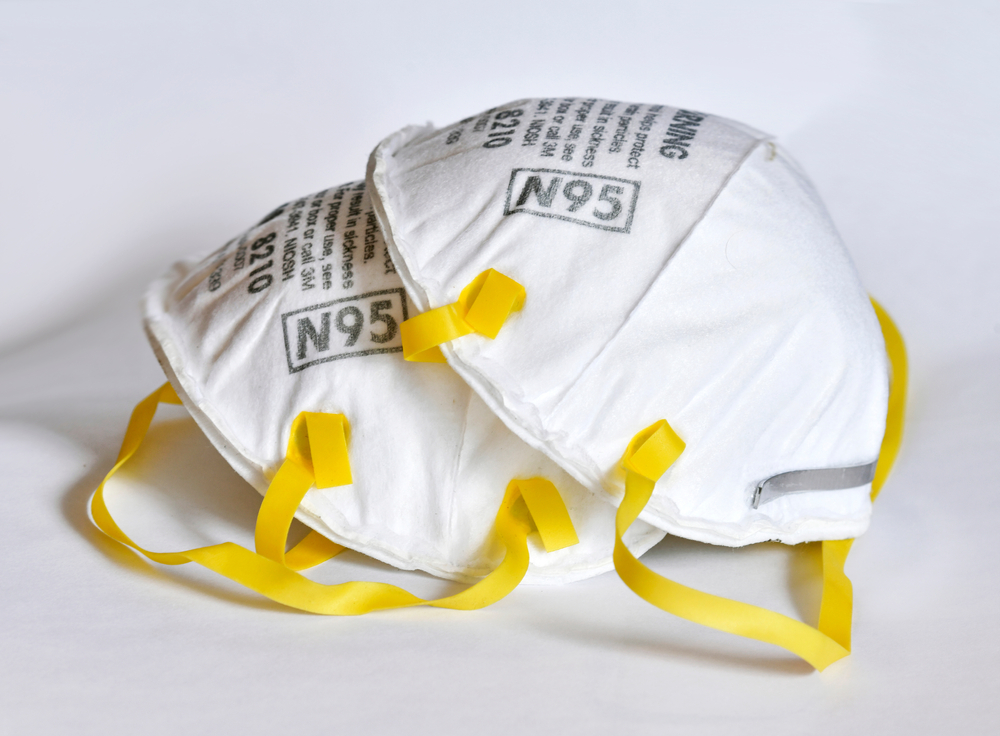 Like some industries, construction has a tendency to put people at risk for illness or injury. This is why so many tasks require personal protective equipment (PPE). There are many types of PPE you may need, depending on your field and the kind of work you do. Here’s what to expect from headgear, masks, gloves, boots and more.
Like some industries, construction has a tendency to put people at risk for illness or injury. This is why so many tasks require personal protective equipment (PPE). There are many types of PPE you may need, depending on your field and the kind of work you do. Here’s what to expect from headgear, masks, gloves, boots and more.
Masks
The recent pandemic has made masks a topic of national attention. The right kind of mask for the construction job depends on what you’re trying to prevent. In the normal case, you’re looking to minimize what you inhale. Masks that are designed for disease prevention filter what you breathe out as well as what you breathe in. For most jobs, using a standard N95 mask may be sufficient. For jobs involving hazardous chemicals or inhalants, you may need a respirator with a filtration device. Face shields can also minimize your exposure, but unless they provide a tight seal around your head, they’re usually meant to be used along with masks and protective eyewear.
Eyewear
The type of protective eyewear that you should use depends on the task at hand. For example, someone who is simply trying to avoid a minimal amount of dust in the air may be able to get away with a basic pair of protective glasses. People who are working with hazardous materials may need to use goggles that surround their eyes and create a tight seal to completely prevent any contamination. Working outside during daylight hours may require you to use tinted eyewear to minimize sunburns and increase visibility. If you’re working with equipment like welding, you might need to wear a specialized protective helmet or shield with a certain type of tinted glass.
Footwear
For most jobs in construction, you need footwear that covers the entire foot and is comfortable to wear for long periods of time. As a general rule, you may also want to purchase boots with ankle support and a slip-resistant sole. This helps you to avoid falls, particularly if you are working above the ground in an exposed area. For use with certain types of tools, you may consider boots with a puncture-resistant upper. This can prevent you from hitting yourself in the foot with a nail, or puncturing your foot by stepping on something sharp.
Body Protection
Although many forms of PPE focus on protecting your eyes and nose, there are a variety of equipment choices you may want to make as well. For example, you may want to invest in:
- Protective, durable outerwear that covers the body and can go over your regular clothing
- Gloves that protect your hands from freezing, burning or cuts, depending on the task
- Hard hats that minimize the risk of injury from falls or from falling debris
- Hearing protection when you are working with or nearby equipment that causes loud noises
These tools are highly specific to the job at hand. You may need some or all of them.
Fall Protection
In most cases, your protection against falls comes from the layout of your working space and additional equipment installed. This means that you should look for things like guard rails and safety nets if you’re going to be working in an exposed area above ground. Otherwise, there are systems that you can use to minimize your risk. For example, you may wear a safety harness connected to a cable that will prevent you from hitting the ground if you fall. You may also wear a monitoring device that can alert you or someone else that you may be about to fall.
In an industry like construction where you work on your feet and spend time with heavy equipment, the right kind of PPE is key. So is a thorough grounding in your field. For more information, contact CSLS today!